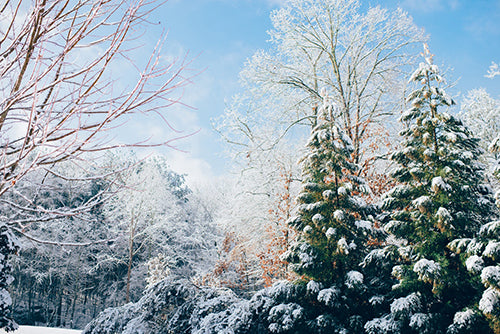
Whether or not PunxsutawneyPhil saw his shadow, there are bound to be a few more cold days between now and spring. For older adults, cold weather presents some additional challenges. Here are our top tips for staying warm and safe during cold winter weather.
Equipment Check
If you can, do this while it is still a little warm outside. Make sure you have someone take a look at your heating appliance to ensure it is working properly. This includes gas or electric heaters, furnaces, portable electric heating units, gas or wood-burning fireplaces—essentially whatever you or your loved one uses to get warm. When not working properly, they can pose a danger to those in the home. If you have gas appliances, consider installing a carbon monoxide detector in addition to your smoke detectors.
If you’re burning a fire in your fireplace, or candles throughout your home, make sure you have a fire extinguisher accessible and ready to put out any flames that get out of control.
It is important to have back up heat in case your first source of heat fails or breaks down during a winter storm. Make sure you have plenty of warm clothing, blankets, socks and outerwear around your home. If you have hard wood or tile floors, get socks with grips on the bottom so you are less likely to fall down.
Additional tips:
• Using an oven for heat is not safe.
• Keep space heaters at least 3 feet from furniture
• Don’t store gasoline indoors
• Stay inside if your doorway is blocked by snow
Hypothermia and Frostbite
If your body keeps losing heat faster than it can make it, you might be at risk for hypothermia. It can happen suddenly in extreme cold, or over a longer period of time. It is particularly dangerous because you may not recognize you are experiencing it. If your body temperature falls below 95 degrees, it is an emergency and you should call 9-1-1, or press your help button immediately.
Signs to look for:
• shivering, exhaustion
• confusion, fumbling hands
• memory loss, slurred speech
• drowsiness
If you believe your loved one is in danger of hypothermia, take action to warm her back up. Take off any wet clothes and start warming the center of the body first.
Electric blankets are great for this as are warm non-alcoholic drinks. Seek medical help as soon as possible.
Frostbite happens when parts of your body freeze. It is more likely to happen when a person is exposed to an extreme cold outside. The parts of the body that are frequently affected include ears, nose, toes, fingers, cheeks and chin. It is a serious condition that can cause permanent damage or lead to amputation.
Like hypothermia, you might not recognize frostbite is happening to you because your body is numb from the cold.
Here are some signs of frostbite:
• a white or grayish-yellow skin area
• skin that feels unusually firm or waxy
• numbness
Winter weather poses some safety issues that you might not have to worry about at other times of the year. But with a little planning and some help from family and friends, you are sure to be safe and warm.

 1-800-916-0138
1-800-916-0138